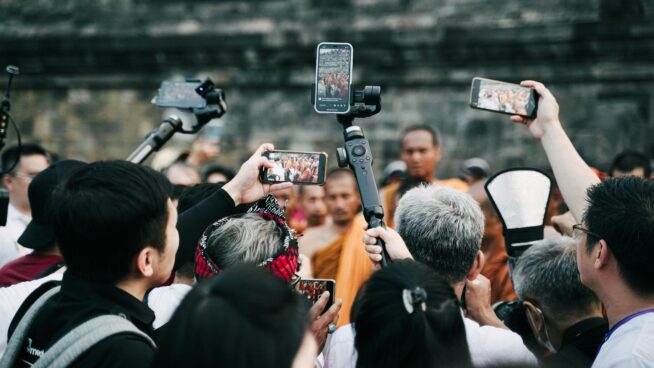
Berlin, Germany – With religious freedom under growing pressure globally, a major international conference will gather government officials, religious leaders, and civil society organizations in Berlin this week. The 2024 International Ministerial Conference on Freedom of Religion or Belief, hosted by the German Federal Ministry for Economic Cooperation and Development (BMZ) alongside the International Religious Freedom or Belief Alliance (IRFBA), kicks off on October 10th.
The conference zeroes in on a critical and timely theme: the impact of Artificial Intelligence (AI) on freedom of religion or belief. Organizers highlight the precarious situation, where four out of five people face limitations on religious practice, often alongside restrictions on free speech and assembly. Women, in particular, face compounded challenges.
While AI and social media present opportunities for knowledge sharing, dialogue, and peaceful exchange, they can also be exploited to spread misinformation, fuel repression, and deepen societal divides. The conference emphasizes the need to leverage these technologies for promoting peace and diversity while combating their potential for misuse.
Shrinking Space for Religious Practice
The conference comes at a critical time. According to the BMZ, four out of five people globally cannot freely practice their faith, often facing restrictions that also limit freedom of expression and assembly. Women, in particular, are disproportionately affected and discriminated against.
AI – A Double-Edged Sword
The rise of AI and social media presents both challenges and potential solutions. These technologies can be used to spread misinformation, fuel repression, and deepen societal divisions. However, they can also be harnessed to promote knowledge sharing, dialogue, and peaceful exchange.
The conference will focus on navigating this complex landscape by fostering a deeper understanding of the relationship between AI and religious freedom.
A Global Conversation for a More Inclusive Future
The conference will bring together leading decision-makers, civil society organizations, religious leaders, and participants from across the globe. Through high-level discussions, the conference aims to develop concrete solutions to strengthen religious freedom in a digital world, where diversity and openness are essential for peace and social cohesion.
Key topics to be explored include:
- The impact of AI development and use on religious freedom.
- The role of social media in both upholding and undermining religious freedom.
- The implications of AI for growing government surveillance and transnational repression of religious minorities.
Commissioner Schwabe: Committed to Protecting Religious Freedom
Frank Schwabe, appointed Federal Government Commissioner for Freedom of Religion or Belief in January 2021, emphasizes the importance of the conference. He states, “I will continue to promote the human rights-based approach to religious freedom, critically examining the situation in countries worldwide and supporting those affected.”
The 2024 International Ministerial Conference on Freedom of Religion or Belief marks a crucial step in safeguarding religious freedom in an increasingly complex and interconnected world.